Are you considering assigning guardianship for your loved ones and need a clear, concise letter template? It's essential to approach this sensitive topic with care, ensuring that all parties understand the responsibilities and legal implications involved. Our letter template offers a straightforward way to express your intent while safeguarding the interests of those you care about. Ready to take the next step in securing your family's future? Let's dive in and explore the details together!
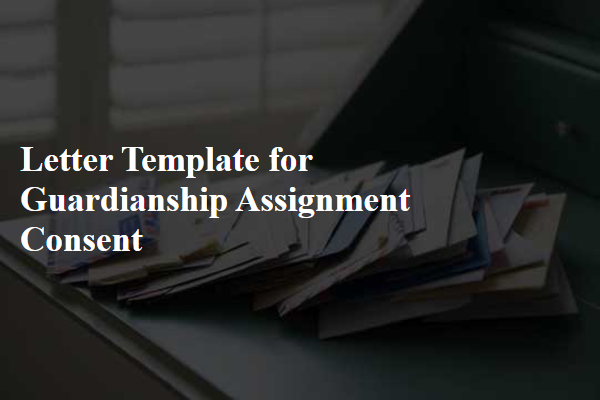
Legal terminology accuracy
The guardianship assignment consent process involves crucial legal terminology to ensure clarity and compliance with jurisdictional requirements. The petitioners must be identified by full legal names and addresses, along with their relationship to the minor or incapacitated individual, often referred to as the "ward." Legal guardianship establishes a fiduciary duty, requiring consent forms to clearly outline rights, responsibilities, and decision-making authority of the guardian. Courts typically demand specific language, including terms like "best interests of the ward" and "capacity to consent," ensuring that the individual granting consent is informed and competent under laws governing incapacity. Relevant statutes, such as the Uniform Guardianship and Protective Proceedings Act (UGPPA), may also be referenced to reinforce legal standing and procedural adherence.
Clear identification of parties
The guardianship assignment consent document requires clear identification of all parties involved. This includes the full legal names of the Guardian, who is assuming responsibility under the guardianship agreement, and the Ward, the individual under the Guardian's care. Dates of birth should be included for both parties to confirm identity. Address details for the Guardian's residence provide essential context. Additionally, relevant information such as the Ward's medical history or special needs may enhance understanding of the relationship dynamics. Legal identification numbers, such as Social Security numbers or driver's license details, add another layer of verification, ensuring all parties are distinctly recognized within the legal framework of the guardianship arrangement.
Specific guardianship roles and responsibilities
The assignment of guardianship roles is a crucial legal process that involves the delegation of responsibility for the care and decision-making of a minor or an incapacitated adult. In legal documents pertaining to guardianship assignments, specific roles and responsibilities must be clearly outlined to ensure the well-being of the individual under guardianship. Guardians are typically responsible for overseeing daily activities, including healthcare management, educational needs, and financial affairs. Additionally, they must act in the best interest of the ward, ensuring safety and providing emotional support. For instance, guardians are expected to ensure that the ward receives appropriate medical care, including regular check-ups and adherence to prescribed treatments. Furthermore, guardians must maintain accurate records of financial transactions and decisions made on behalf of the ward, including budgeting for essential expenses and ensuring compliance with legal requirements. Proper documentation of these roles promotes transparency and accountability, vital factors in fostering trust and effective guardianship.
Duration and limitations
The guardianship assignment consent letter template outlines the specific duration for which guardianship is granted, ensuring clarity in the temporary or permanent nature of the arrangement. It defines limitations, detailing the scope of authority bestowed upon the guardian, such as medical decisions, educational choices, and financial management. This structured document serves to protect the interests of the ward while maintaining the guardian's responsibilities within legal boundaries. Key elements include explicit time frames, conditions for extending or terminating guardianship, and any restrictions on the guardian's decision-making capacity, all of which are crucial for compliance with local laws and safeguarding the rights of all parties involved.
Notarization and signature requirements
In guardianship assignment consent, notarization and signature requirements play a crucial role in ensuring the legality and authenticity of the document. A notarized consent form typically requires the presence of a licensed notary public, who verifies the identities of the guardians and witnesses the signing process. Each signatory, including the proposed guardian and biological parents, must provide valid government-issued identification. The document must then be signed in the notary's presence, ensuring clear acknowledgment of the terms outlined within the consent. It may also specify the need for additional witnesses, depending on local laws, adding an extra layer of verification. Proper notarial actions, including the notary's seal and signature, finalize the document, which may later be presented in family court proceedings to establish legal guardianship in place, ensuring the child's welfare.
Letter Template For Guardianship Assignment Consent Samples
Letter template of guardianship assignment consent for elderly relatives.
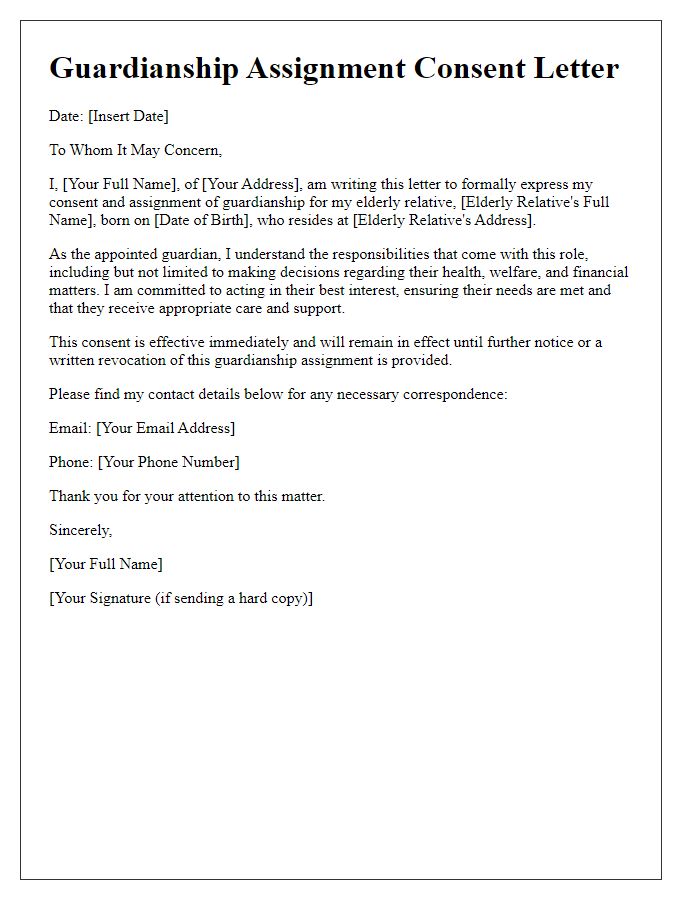
Letter template of guardianship assignment consent for disabled individuals.
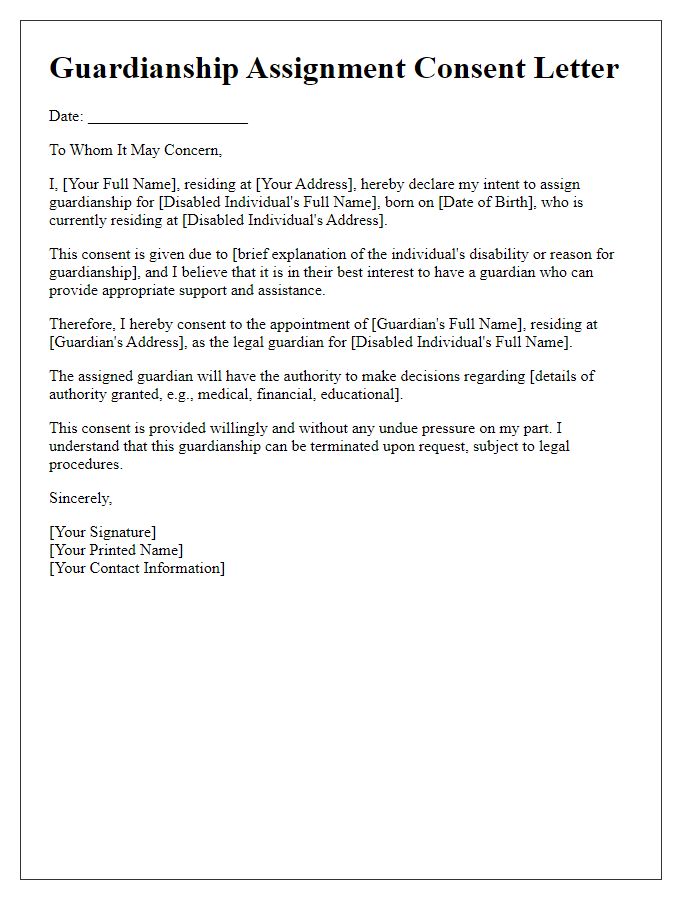
Letter template of guardianship assignment consent for medical decisions.
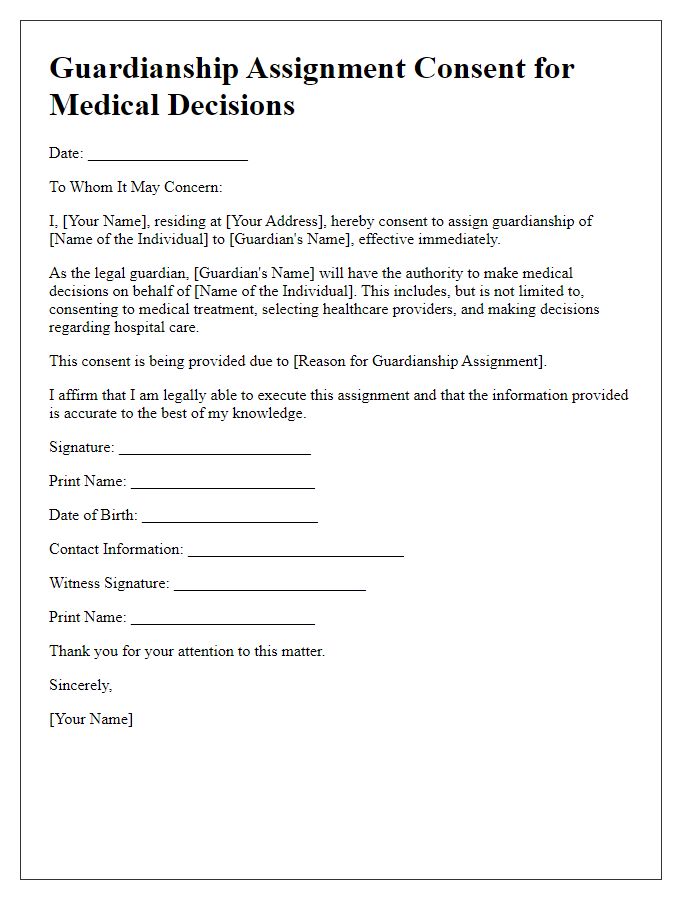
Letter template of guardianship assignment consent for educational purposes.
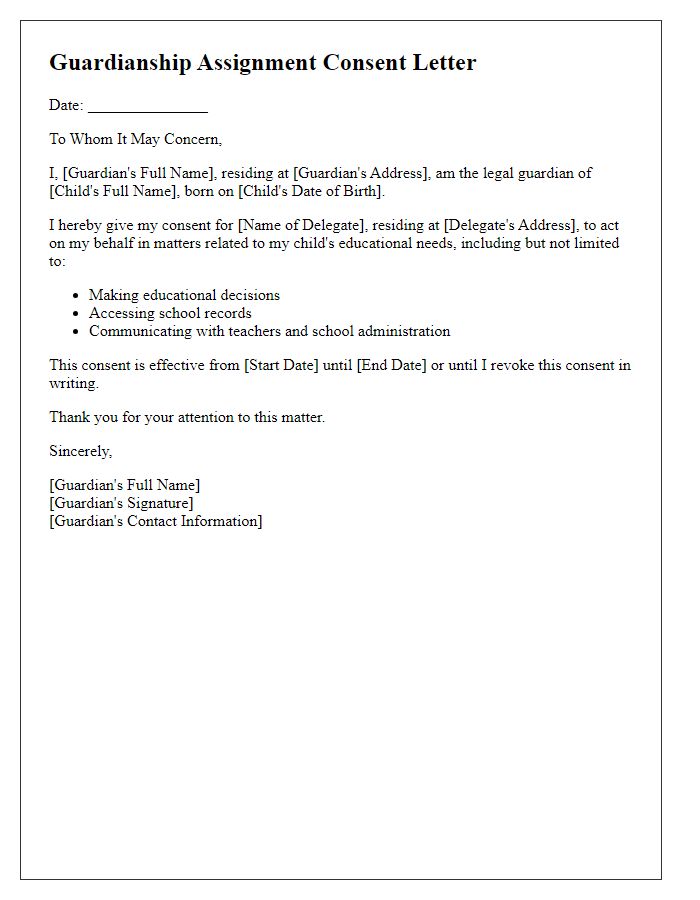
Letter template of guardianship assignment consent with financial authority.
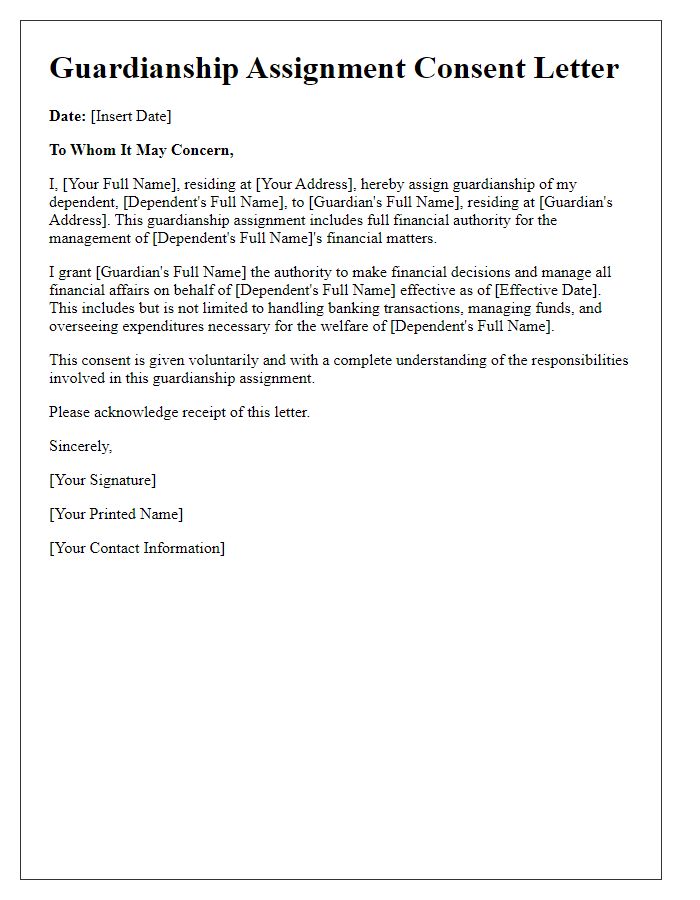

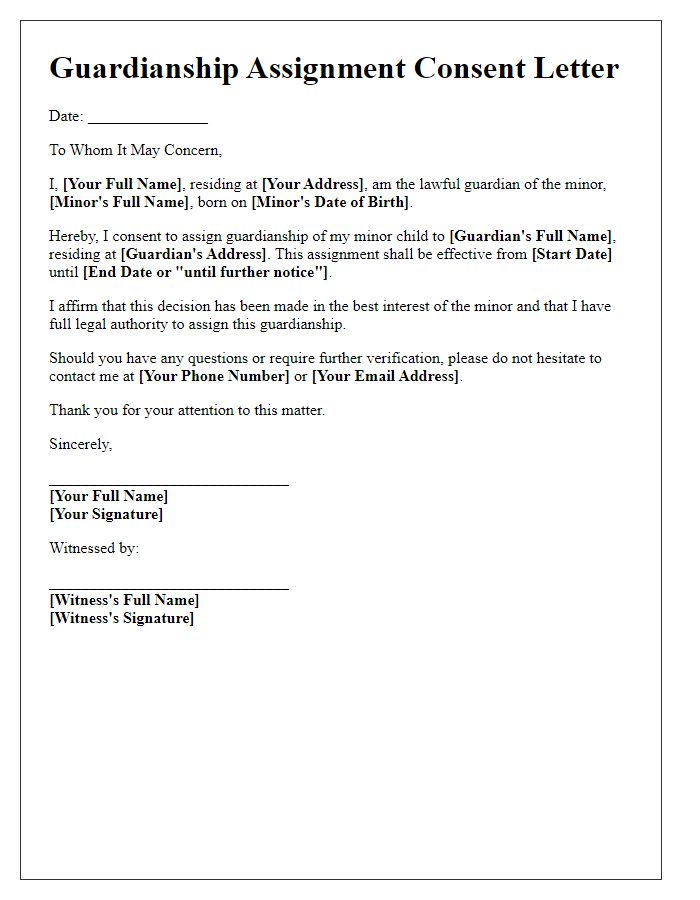
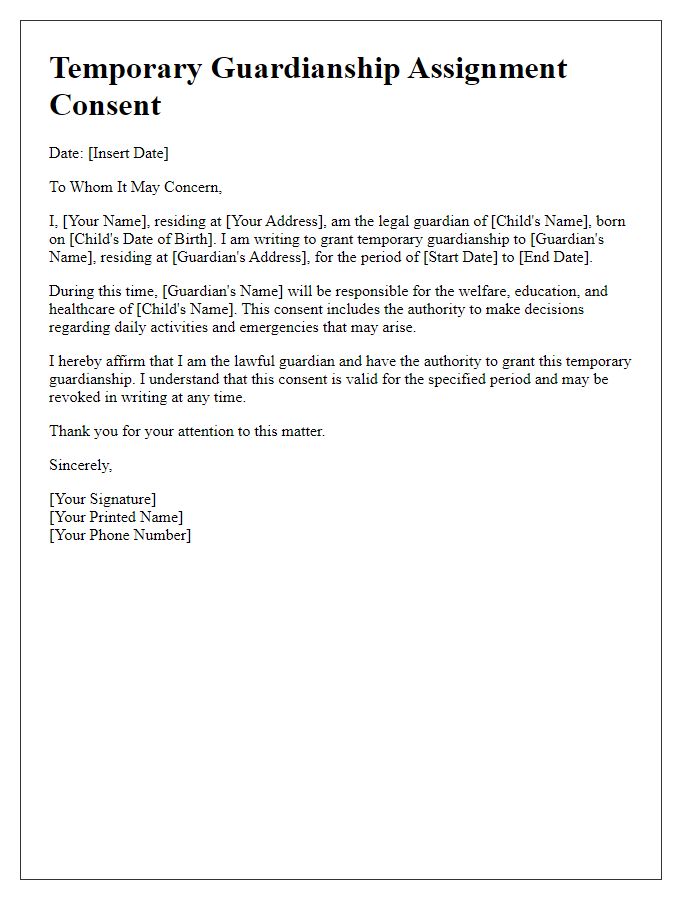
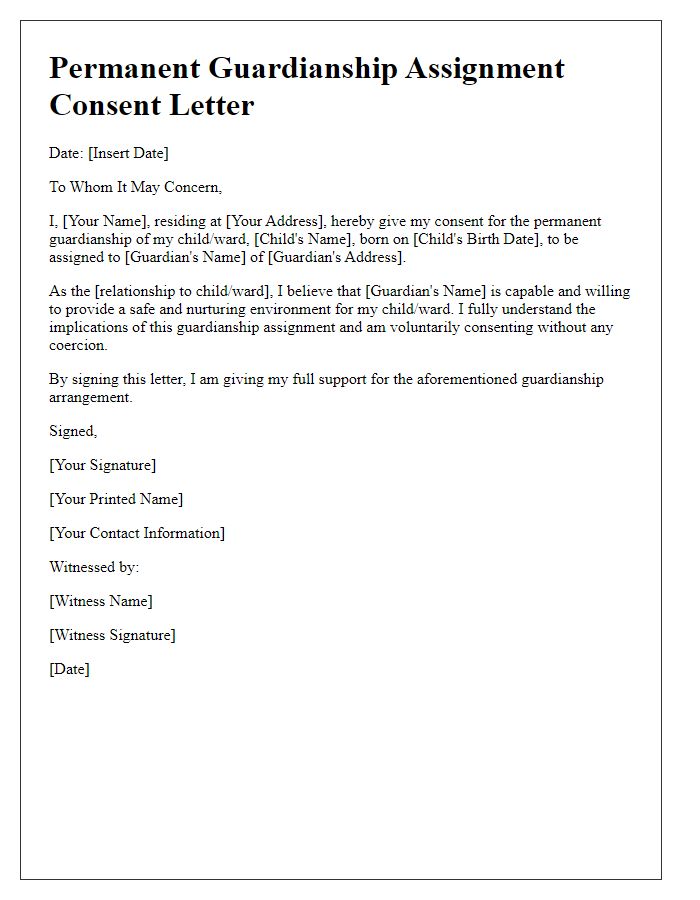
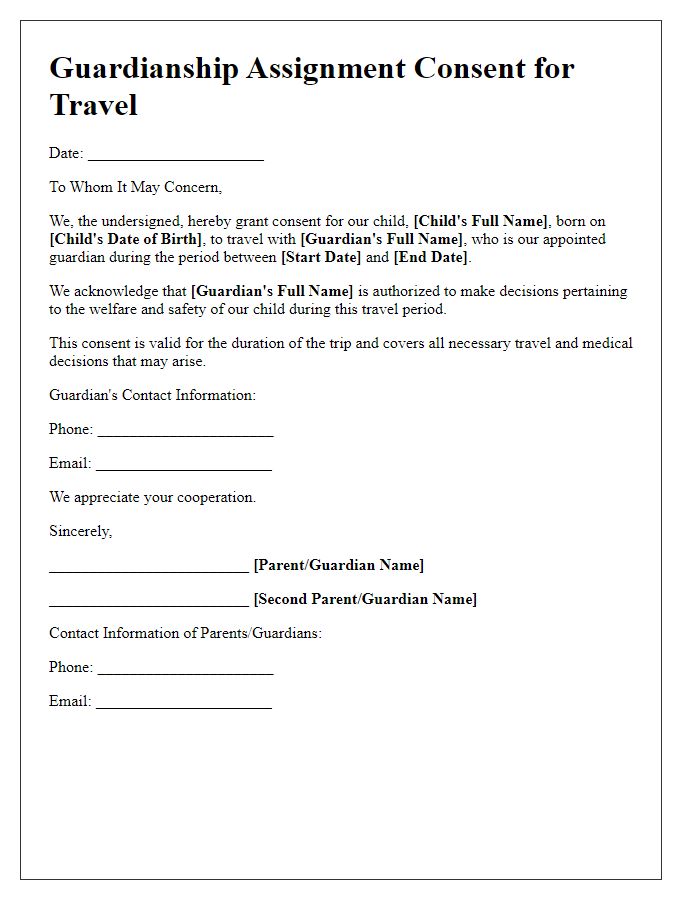


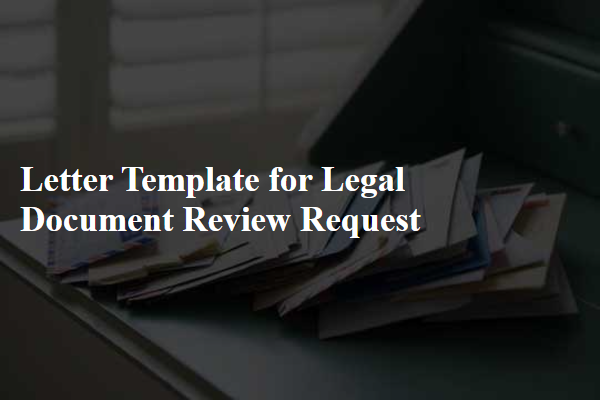
Comments